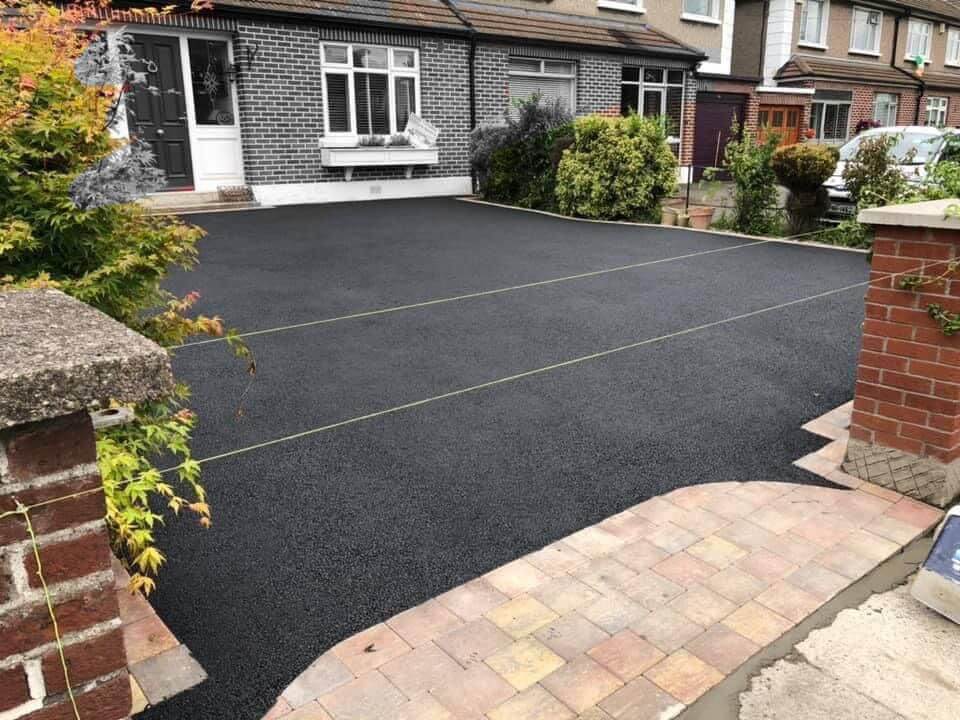A gravel driveway is a popular choice for homeowners due to its affordability, versatility, and rustic charm. However, ensuring the longevity and functionality of a gravel driveway relies heavily on its depth. In this article, we will explore the factors to consider when determining the appropriate depth for a gravel driveway and provide recommendations for achieving a properly installed and durable driveway.
Understanding Gravel Driveways
Before delving into the depth requirements, it is essential to understand the purpose and advantages of gravel driveways. A gravel driveway provides a stable surface for vehicles, improves drainage compared to solid surfaces, and can blend seamlessly with the natural environment. However, it also has some drawbacks, such as the potential for ruts and the need for periodic maintenance.
Factors to Consider
Several key factors influence the depth requirements for a gravel driveway:
Climate and Weather Conditions:
Different climates have varying effects on gravel driveways. Regions with freeze-thaw cycles require deeper driveways to withstand the expansion and contraction caused by freezing temperatures. In warmer climates, a slightly shallower depth may be sufficient.
Traffic and Usage:
The expected vehicle load and frequency of traffic impact the necessary depth of a gravel driveway. Heavier vehicles, such as trucks or RVs, require a deeper driveway to prevent rutting and sinking.
Soil Composition and Stability:
Assessing the soil type and its stability is crucial. Soils with good load-bearing capacity require less depth, while loose or sandy soils may necessitate a deeper gravel layer to prevent sinking and shifting.
Drainage Considerations:
Proper drainage is essential for the longevity of a gravel driveway. Adequate slope and drainage channels prevent water buildup, which can erode the driveway’s base. Areas with poor drainage may require a deeper driveway to accommodate effective water runoff.
Recommended Gravel Driveway Depths
While specific depth recommendations vary based on factors mentioned above, here are some general guidelines:
For regions with freeze-thaw cycles, a minimum depth of 8 to 12 inches is typically recommended to withstand ground movement.
In moderate climates, a depth of 6 to 8 inches is often sufficient for light to medium traffic.
For heavy traffic areas or the presence of large vehicles, increasing the depth to 10 to 12 inches provides added durability.
Soil stability and drainage considerations may require adjustments to these guidelines.
Installation and Maintenance Tips
Proper installation and maintenance contribute significantly to the longevity of a gravel driveway. Here are some tips:
Installation:
Excavate the driveway area to the desired depth, accounting for the recommended guidelines.
Compact the soil to ensure a stable base.
Add a geotextile fabric layer to inhibit weed growth and enhance stability.
Gradually add and compact the gravel layers to achieve the desired depth.
Maintenance:
Regularly grade the driveway to smooth out ruts and ensure even gravel distribution.
Re-gravel areas with significant wear or erosion.
Address drainage issues promptly to prevent water damage.
Cost Considerations
The cost of a gravel driveway is influenced by its depth. Deeper driveways require more excavation, gravel, and labor, resulting in higher upfront costs. However, deeper driveways typically offer improved durability, reducing long-term maintenance and repair expenses.
Balancing Cost-effectiveness and Durability
It is essential to strike a balance between cost-effectiveness and the long-term durability of a gravel driveway. While it may be tempting to skimp on depth to save money initially, inadequate depth can lead to frequent repairs and premature driveway failure.
Conclusion
Determining the appropriate depth for a gravel driveway is vital for its functionality and longevity. Factors such as climate, traffic, soil stability, and drainage should be considered when planning the depth. By following recommended guidelines, proper installation, and regular maintenance, homeowners can enjoy a durable and aesthetically pleasing gravel driveway that stands the test of time.


